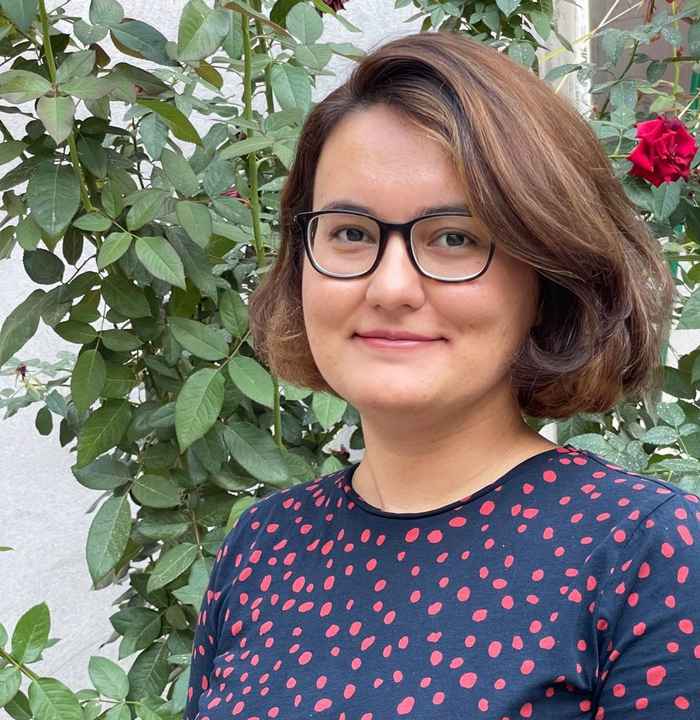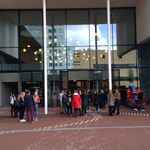Navigating Migration Research Amid Shifting Political Climates: Critical Conversations on Academic Space, Mental Health & Research Autonomy
Organised by the Migration Dialogue of the ARC-M
- Date
- 10 November 2025
- Time
- 10:30 -15:00
- Room
- B5.12
This workshop creates a reflective and supportive space to think critically and collectively about how political and institutional dynamics intersect with mental health, academic freedom, and researcher safety. It invites early-career researchers to share experiences, strategies, and sources of resilience as they pursue justice-oriented migration research within challenging contexts, affirming that care, integrity, and collaboration remain vital forms of resistance and renewal in scholarly life.
Registration
To participate, register by filling in the form by November 5th. In the form, please briefly outline: your research focus, your motivation for participating, and what you hope to gain or contribute to the discussion.
This workshop is part of a broader effort by the Migration Dialogue to foster dialogue, mentorship, and solidarity among migration scholars navigating increasingly politicized research landscapes. We look forward to welcoming you into this critical conversation.
Workshop Format
The workshop will consist of two parts:
10.30-12.00 Part I – Framing the Field
Drawing from their respective work, Dr. Nodira Kholmatova and Professor Kyoung Mi Choi will set the stage by addressing current migration research perspectives under political pressure:
- The increasing marginalization of refugees and labor migrants and the intensification of deportation policies across Eastern and Western Europe.
- The impact of political and institutional shifts on academic freedom and research funding in the United States.
A moderated Q&A session with participants will follow this segment.
12.00-13.00 Lunch
13.00-15.00 Part II – Critical Collective Reflection: Navigating Emotion, Power, and Safety in Migration Research
The second part will be an open, trauma-informed conversation facilitated by the organizers, where participants are invited to:
- Share experiences navigating academic spaces that may be hostile to their work
- Reflect on how research under pressure affects mental health, identity, and belonging
- Collaboratively define the next urgent questions and forms of action for critical migration research
- Discuss practices of care, solidarity, and sustainability in politically constrained environments

About the facilitators
Dr. Kyoung Mi Choi is a Professor in the Department of Counselor Education at San José State University in California, US, and a Visiting Scholar at Tilburg University, Netherlands. She's been recognized as an International Fellow in the National Board of Certified Counselors and as a recipient of the NAFSA Diversity Impact Program. She has also been a Public Voices Fellow and regularly contributes to Psychology Today. Choi has served on the board of directors for Families in Global Transitions and as a member of editorial boards for various journals, including the Journal of Counseling and Development (JCD), Journal of College Student Development (JCSD), and Journal of LGBT Issues in Counseling. Her work with Queer Educators and Counselors Network (QECN) received the Community Advocacy Award for the Assembly District 27 Pride Celebration in 2022. Choi is also a recipient of the U.S. Fulbright Scholar award for 2025-2026.

Dr. Nodira Kholmatova is a sociologist and migration researcher who studies social inequalities in return migration and deportation regimes, as well as the impact of migration policies on migrants and their families. She brings extensive experience conducting fieldwork in authoritarian regimes and developing decolonial strategies for ethical, resilient research practices. She works as a postdoctoral researcher at the Department of Political Science and the Amsterdam Institute for Social Science Research (AISSR) of the University of Amsterdam. Her research areas focus on migration trajectories from Central Asia. More recently, she has also been examining Serbia in the Western Balkans and the Philippines in Southeast Asia as part of the ERC-funded project Reintegrate, collaborating with Dr. Katie Kuschminder on reintegration governance. Her recent and upcoming publications examine the gendered dynamics of labor migration and deportation, as well as the governance of return migration and reintegration globally.
